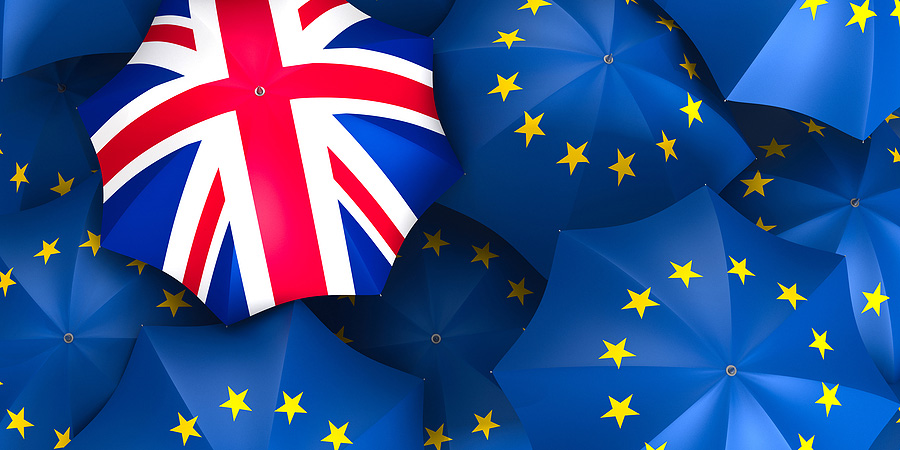The EU and UK finally agreed on a long-awaited trade deal with just days to spare, and the treaty will apply from 1st January 2021. Here we pick out the main implications for online retailers.
Tariff-free (and quota-free) trade
This is the main positive that both sides are focusing on. However, this is conditional on Rules of Origin requirements. So for UK retailers buying goods from overseas and selling them to EU consumers, or EU retailers selling to the UK, there may still be duties payable on imports.
If consumers are required to pay these duties/taxes on import it can cause friction, however bespoke delivery duty paid options are available where the retailer can cover these charges and provide the shopper with a fully landed cost price at checkout. This price transparency is proven to boost conversions. Please speak to us to see how we can help.
You can check if your products comply with the agreed Rules of Origin in Chapter 2 of the Agreement here
Customs declarations
When the UK was in the EU goods travelling between the two were not considered imports and exports, but that has now changed and there is a customs border.
Customs declarations have become a new requirement for all goods movements between the UK and EU. This will affect around 240,000 UK businesses and 200,000 EU businesses who will have to complete over 200 million declarations for the first time. This will include applying CN documentation for postal clearance and commercial invoices for commercial clearance. This will be an additional burden for businesses and goods will take longer to process at the border.
However, both sides pledge to limit customs red tape, and will have trusted-trader programs to speed things up. The UK says there will be “bespoke” measures and enhanced customs co-operation to help firms including cooperation at roll-on, roll-off ports such as Dover and Holyhead. The EU says there will be specific “facilitation arrangements” for some products including wine, automotive, pharmaceutical, organic and chemical products.
Please see our checklist and fact sheet for guidance on completing customs clearance documentation.
Changes to UK VAT
From 1st January 2021, UK VAT on goods valued up to £135 will be collected at the point of sale, and not the point of import. This means that overseas businesses selling goods to be imported into the UK, valued between £0-135, will be required to charge and collect any VAT due at the time of sale. They must be registered for UK VAT and pay VAT using a UK VAT return.
VAT registered UK importers (B2B) can still choose to account for the VAT by providing their VAT registration to the supplier
Alongside this, Low Value Consignment Relief (LVCR) will be abolished, meaning VAT will be due at the time of sale on all imported goods valued £0 - £135.
To assist businesses with cashflow and paperwork Postponed VAT Accounting (PVA) has been introduced for imports valued at more than £135. PVA will allow registered UK businesses to declare and recover import VAT on the same VAT Return, rather than having to pay it upfront and recover it later.
Changes to EU VAT
The EU will be moving to a similar VAT collection model to that being introduced in the UK, however this will be effective from July 2021 due to the practical difficulties created by the measures taken to contain the coronavirus pandemic, giving Member States and businesses additional time to prepare.
When goods worth up to €150 are purchased from sellers outside the EU, VAT will be charged at the time of sale. The current €22 VAT threshold for importing goods into the EU will also be removed. This means VAT will be due on all non-document shipments from the UK to the EU.
For intra-EU shipments there will be a uniform (to be viewed annually) turnover threshold of 10,000 euros for the entire EU, so if you are exceeding that you have to settle the VAT in the Member State of your customer.
See more details here
Changes to trading with non-EU countries
UK retailers must prepare for changes to trading with non-EU countries that have a free trade agreement with the EU.
Trade agreements that the UK is part of as an EU member state no longer apply when the UK leaves the EU, so the way you access existing preferential arrangements with each country may change.
The UK government is working on new agreements to replace EU trade agreements after Brexit with many already completed or in progress.
Returns
The returns leg for cross-border orders is typically more problematic for retailers than the delivery, especially if you’re still using in-parcel return slips. This is because the onus then lies with the shopper to complete everything correctly for the goods to clear customs. A Customs Invoice will be required for the return, along with reference to the original outbound shipment.
When you consider that if the shopper gets any information wrong or misses anything out the goods may end up stuck at the border incurring storage fees and potentially a bill for import duties and taxes that should not be applicable.
There are digital solutions that can help offer your customers a better experience, and give you much improved visibility of your international returns. Please speak with us to find out more.
This information is for guidance only, please refer to the appropriate authorities for specific advice.





